Tokyo Art Scene: Art Week in Omotesando and Harajuku
Alexander Tovborg, Rashid Johnson and Contemporary Artists for the Future
Tokyo Art Scene is a biweekly report on ongoing art and design exhibitions around Tokyo. It features event listings for architecture, art, ceramics, design, fashion, fine arts, photography and print (both the modern and the traditional) as well as digitally-themed presentations.
Often referred to as the Champs Elysées of Asia, Omotesando Avenue glitters with luxury brand boutiques and fancy restaurants and cafés. Additionally, numerous museums and galleries are scattered throughout, including around its posh neighbors Harajuku and Aoyama. This week, we check out three renowned art venues in the area that offer free admission: Blum & Poe, Gyre Gallery and Espace Louis Vuitton.
“Beyond Devotion” by Alexander Tovborg
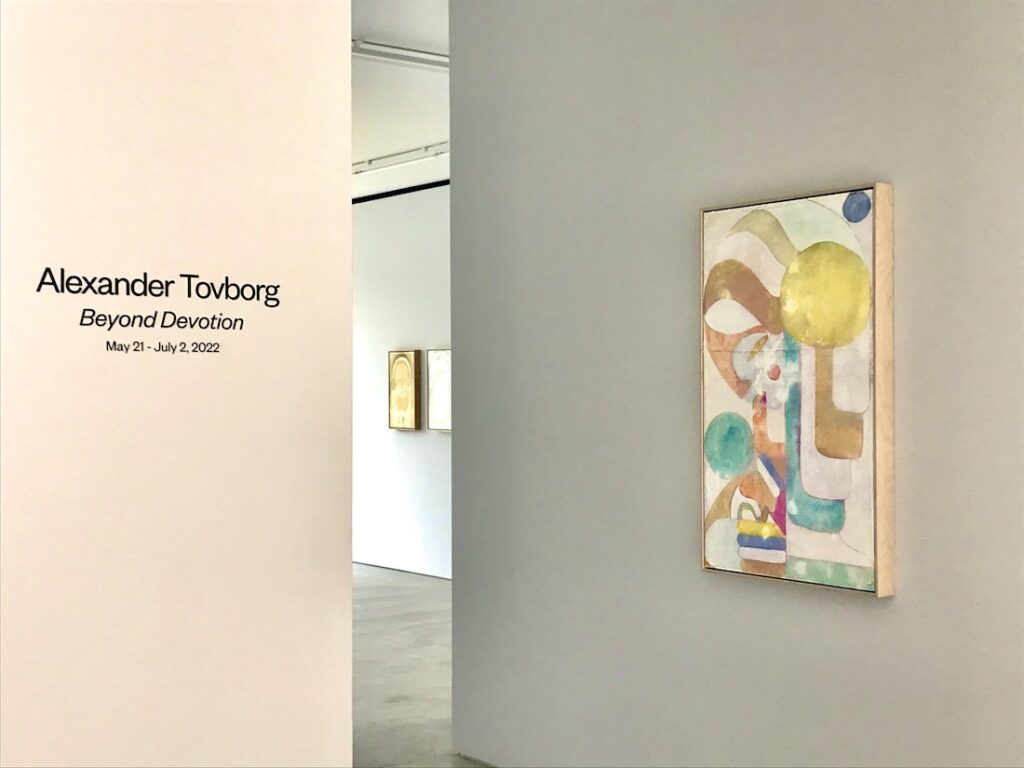 © Photo by Alma Reyes
© Photo by Alma ReyesBlum & Poe is a bright addition to Harajuku’s upbeat art scene. The first gallery, founded by successful art dealers Tim Blum and Jeff Poe, was installed in 1994 in Santa Monica, California before it moved to Los Angeles in 2003. In 2014, the partners opened additional galleries in New York and Tokyo. Poe’s extensive knowledge of emerging artists in Los Angeles combined with Blum’s considerable experience in the Japanese art world continue to develop an expansive network of influential artists around the globe.
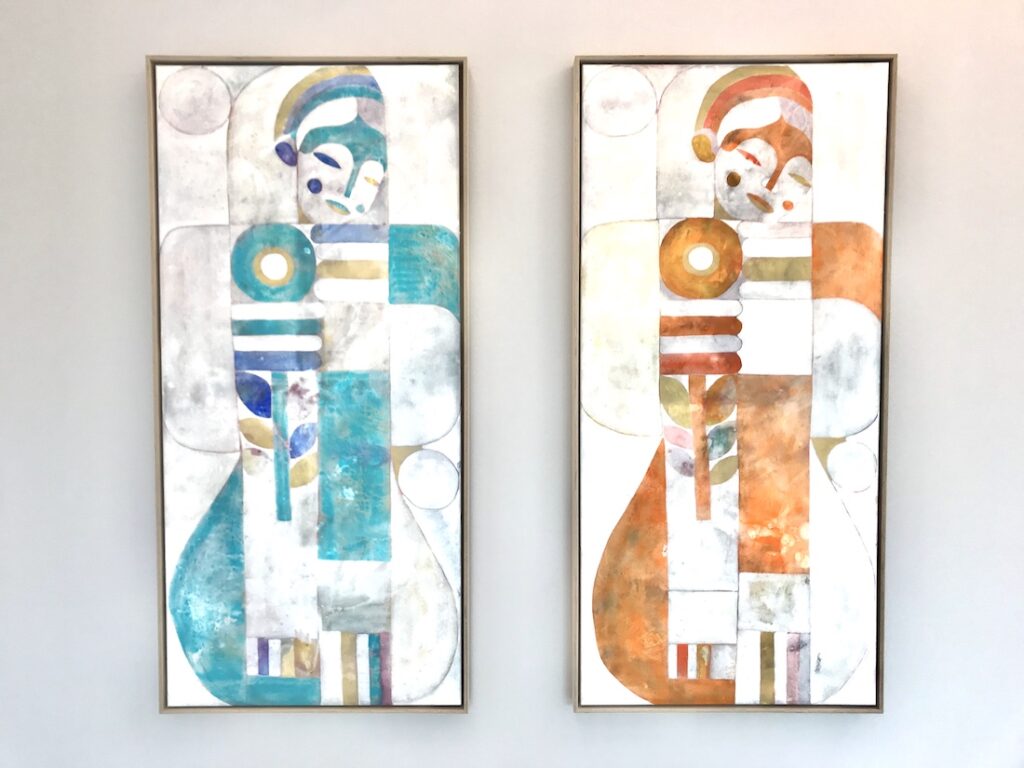 © Photo by Alma Reyes
© Photo by Alma ReyesOngoing until July 2, “Beyond Devotion” introduces contemporary paintings and sculptures by Copenhagen-based artist Alexander Tovborg. It is Tovborg’s fourth solo exhibit in this gallery. Tovborg’s multidisciplinary practice explores the roles of religion, mythology, astrology, botany, symbology and mysticism in shaping human identity and the world we inhabit. The visitor may notice the random appearance of women figures (such as the madonna) and sunflowers in his pieces. For Tovborg, these “dea madonna” series, adapted from madonna representations in Italian religious icons, emit a spiritual and healing symbolism.
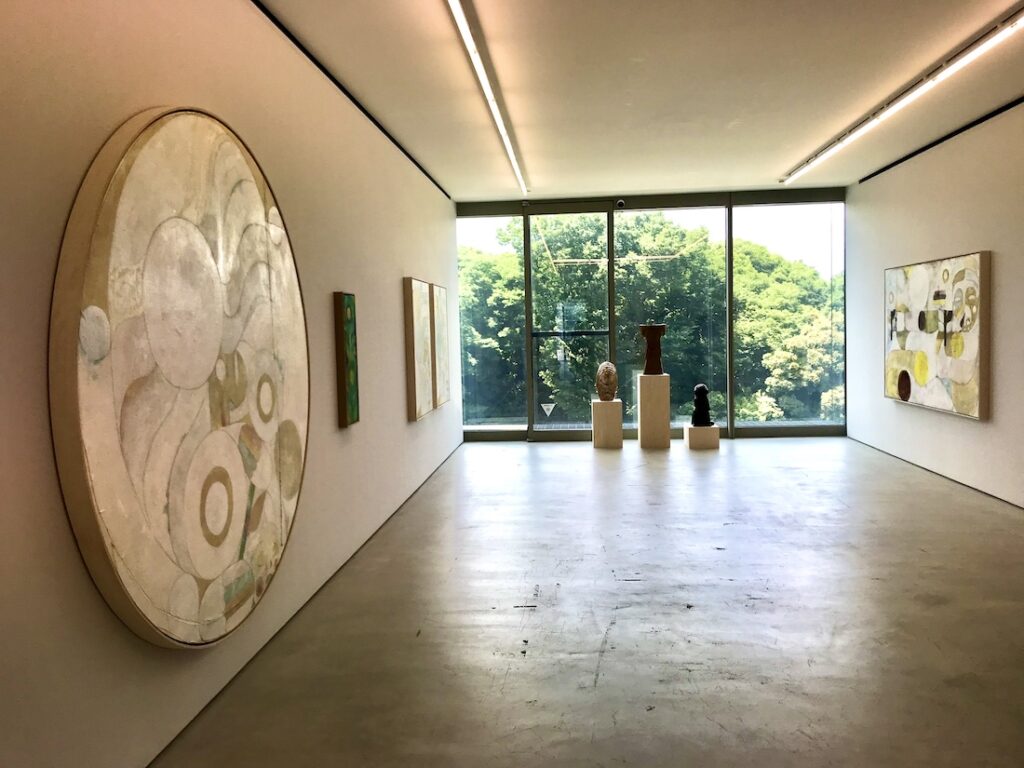 © Photo by Alma Reyes
© Photo by Alma ReyesIn “lying madonna with daughter and sunflowers” (2022), the reclined madonna holds a sunflower stem protectively and delicately, clinging to it for its restorative power. Tovborg pays tribute to the Japanese cultural symbol of the flower, which served as a therapeutic medium after the 2011 Fukushima nuclear disaster.
In “dante as dinosaur with sunflower” (2021) as shown on the top main photo, Tovborg projects mysticism by creating a hybrid figure of a boy‘s head and upper body and a dinosaur’s lower body, similar to the centaur in Greek mythology.
- Date
- Now through Jul. 2, 2022
- Time
- Tue to Sat from 12 p.m. to 6 p.m.
- Location
- Harajuku Jingu-no-mori 5F, 1-14-34 Jingumae, Shibuya, Tokyo - Map
- Fee
- Free (Reservation required)
- Info
- Access: Harajuku station, Exit Takeshita on JR Yamanote line; Meiji-jingumae station Exit 2 on Chiyoda and Fukutoshin lines
“End of the World and Self-Centered World” by 7 Contemporary Artists
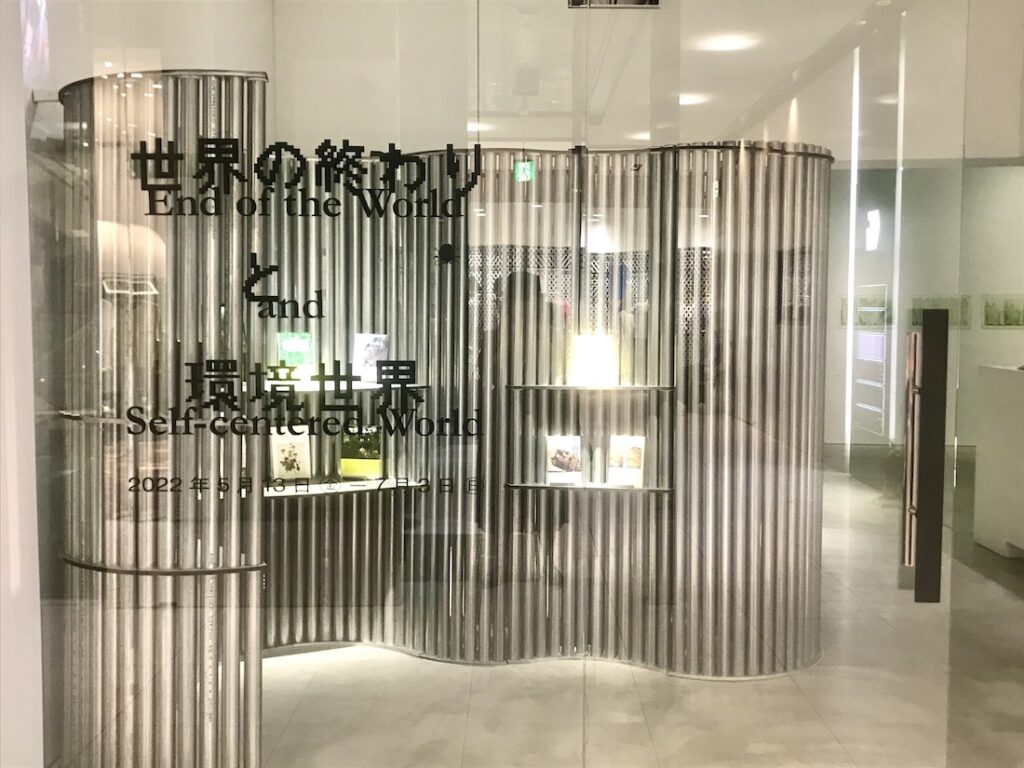 © Photo by Alma Reyes
© Photo by Alma ReyesDesigned by Dutch architects MVRDV in the form of five stacked boxes twisted in a spiral, Gyre has been attracting shoppers, diners and art enthusiasts for its concept of “Shop and Think.” The gallery, located on the third floor, showcases multifarious trends in contemporary art, fashion and concepts of daily lifestyle.
“End of the World and Self-Centered World” runs until July 3, bringing together dynamic artworks and installations by seven prominent artists: Yayoi Kusama, Anish Kapoor, Shusaku Arakawa, Aki Inomata, Akira Kamo, Maki Ohkojima and Lia Giraud.
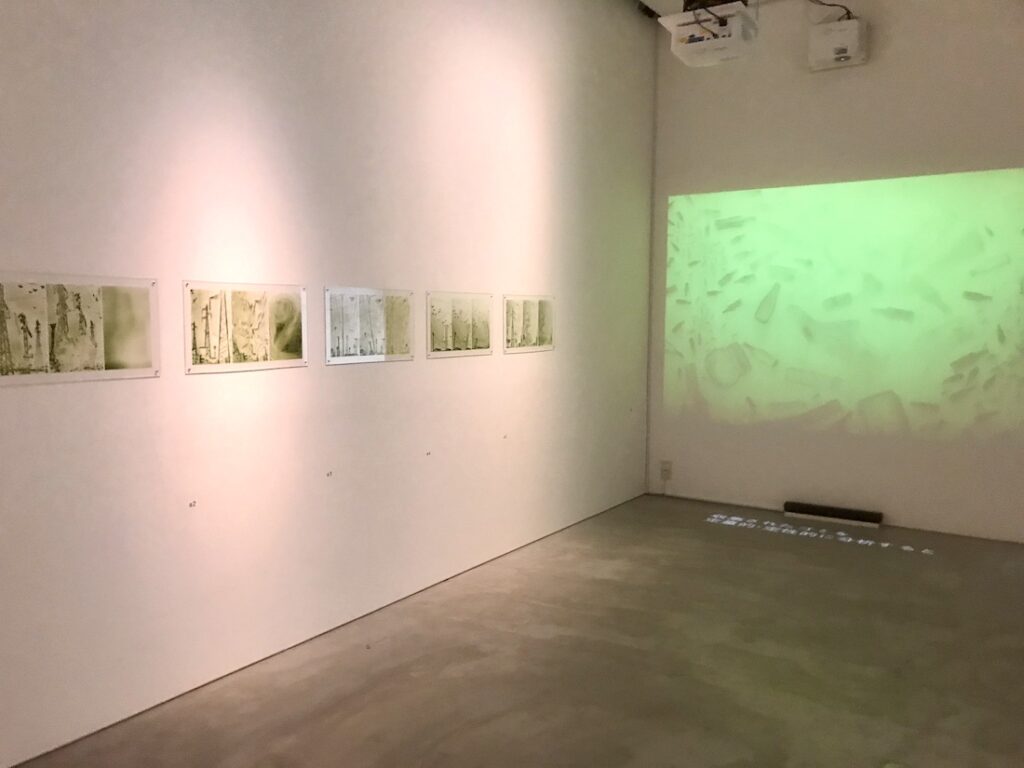 © Photo by Alma Reyes
© Photo by Alma ReyesThe exhibition theme takes on a somewhat apocalyptic view of our present world, imminently distressed by nuclear threats, natural disasters, global warming and political wars. The artists hope to interpret the methods of survival amid this fateful existence, but more importantly, to reveal the ways we can live pragmatically with the perceived coming of the end of the world. The gradual demise of anthropocentrism is becoming vital for humans to realize different self-centered worlds embedded in every individual.
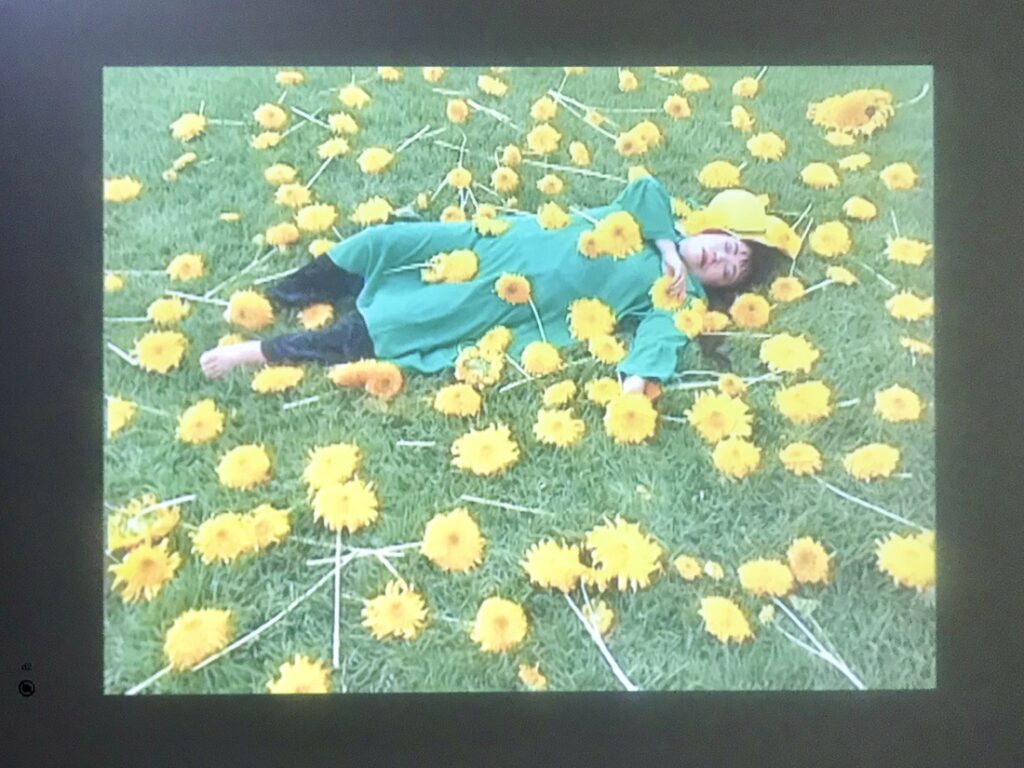 © Photo by Alma Reyes
© Photo by Alma ReyesYayoi Kusama’s short film Flower Obsession (Sunflower) (2000) illustrates the artist frolicking freely on a bed of sunflowers and completely immersed in the natural environment. She remarks, “Obliterate ourselves. Dissolve into our environments. Forget ourselves. Self-obliteration is just another means of escape.”
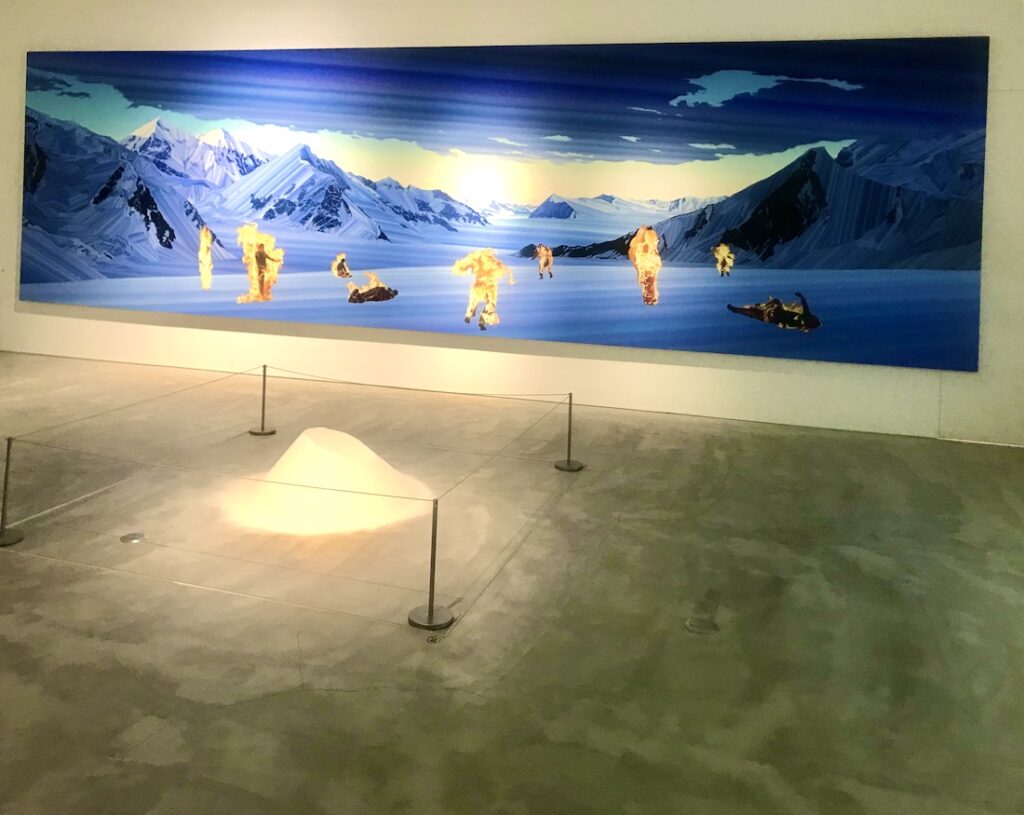 © Photo by Alma Reyes
© Photo by Alma ReyesIn the center of the hall, “1000 names” (1979-80), a mound of white powder shaped like a mountain, covers hidden objects underneath it. Anish Kapoor cleverly employs a metaphor to emphasize the contradiction between the vast expanse of nature and abstraction—that small objects are pulled out from their subconscious state and become parts of a “bigger whole.”
- Date
- Now through Jul. 3, 2022
- Time
- Daily from 11 a.m. to 8 p.m.
- Location
- Gyre 3F, 5-10-1 Jingumae, Shibuya-ku, Tokyo - Map
- Fee
- Free!
- Info
- Omotesando station Exit A1 on Ginza, Hanzomon and Chiyoda lines; Meiji-jingumae station Exit 4 on Chiyoda and Fukutoshin lines; Harajuku station Exit Omotesando on JR Yamanote line
“Plateaus” by Rashid Johnson
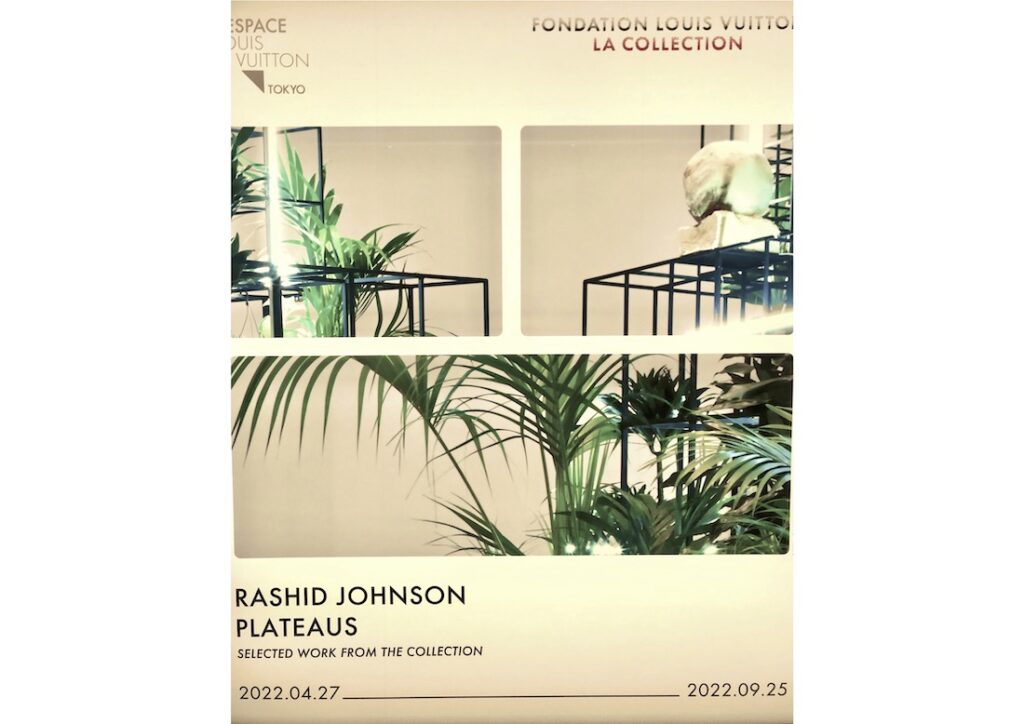 © Photo by Alma Reyes
© Photo by Alma ReyesOpened in 2002 and designed by architect Jun Aoki, the Louis Vuitton boutique in Omotesando shines elegantly through its glass-boxed walls. Located on the seventh floor, the gallery is now showing a unique installation “Plateaus” by American artist Rashid Johnson until Sep. 25. It fuses plants, books and other objects stacked on multiple levels.
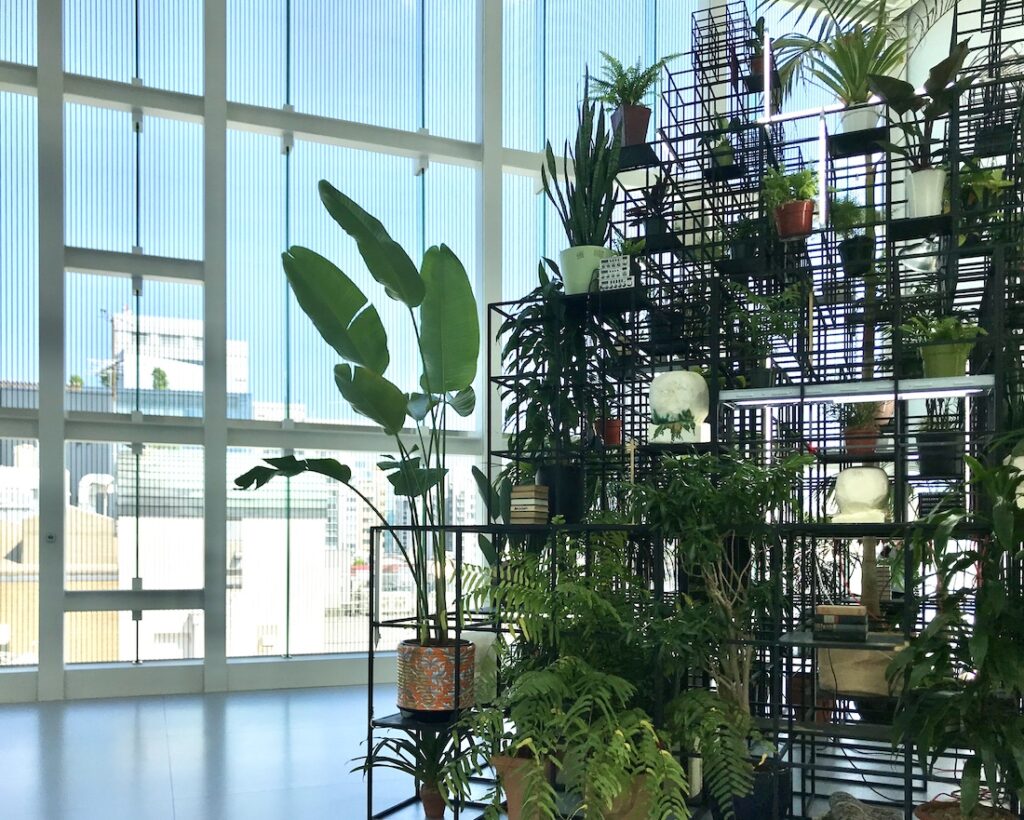 © Photo by Alma Reyes
© Photo by Alma ReyesJohnson studied photography at the Art Institute of Chicago, then branched into sculpture, painting, drawing, film, performance and installation when he moved to New York. His diverse family background honed his cultural, social and racial identity, which is reflected in the medley of materials and objects found in the exhibition: wax, wood, steel, copper, shea butter, ceramics, books, vinyl LPs, videotapes, plants and walkie-talkies. These objects signify fragments of episodes in Johnson’s life from childhood to the present. He says: “I’ve always thought of these installations as brains, complicated structures that allow signifiers to flourish and expand and be in conversation with other signifiers.”
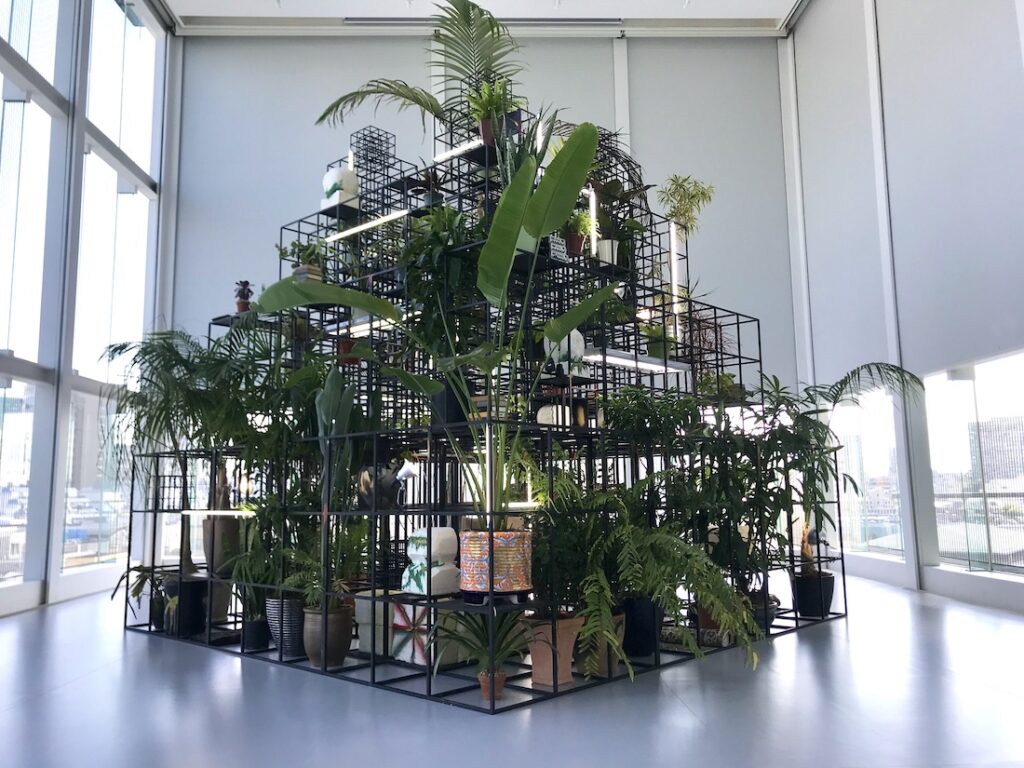 © Photo by Alma Reyes
© Photo by Alma ReyesIt is Johnson’s first solo exhibition in Japan. By creating puzzles of materials wrapped around nature, he tries to express a web of emotional states that people experience in their lives.
- Date
- Now through Sep. 25, 2022
- Time
- Daily from 11 a.m. to 7 p.m.
- Location
- Louis Vuitton Omotesando Bldg. 7F, 5-7-5 Jingumae, Shibuya-ku, Tokyo - Map
- Fee
- Free!
- Info
- Access: Omotesando station Exit A1 on Ginza, Hanzomon and Chiyoda lines; Meiji-jingumae station Exit 4 on Chiyoda and Fukutoshin lines; Harajuku station Exit Omotesando on JR Yamanote line
After seeing the exhibitions, you can head towards Meiji Shrine and Meiji-jingu Gyoen Park to contemplate the artists’ messages of self-evaluation and the importance of understanding our interrelationships with nature, objects, time and space more deeply.
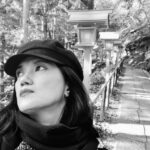











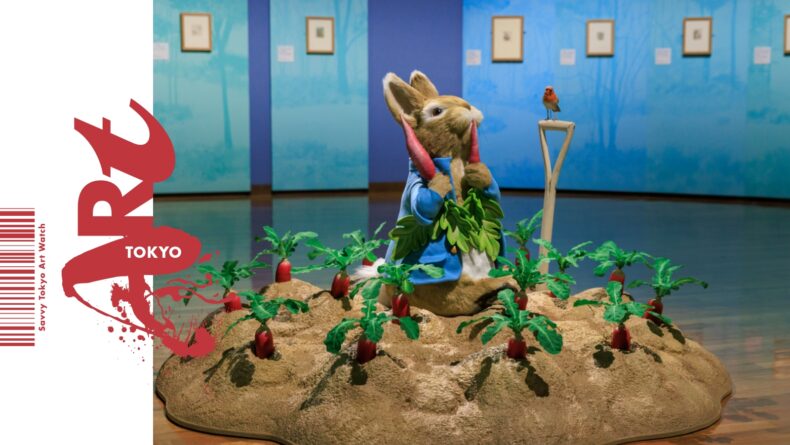
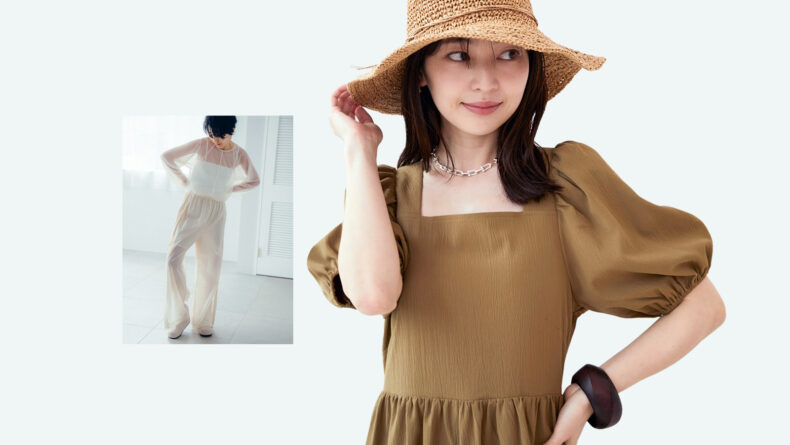
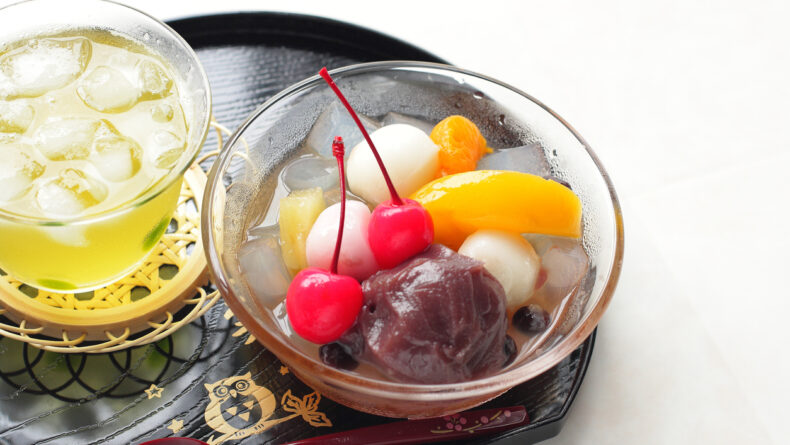

Leave a Reply